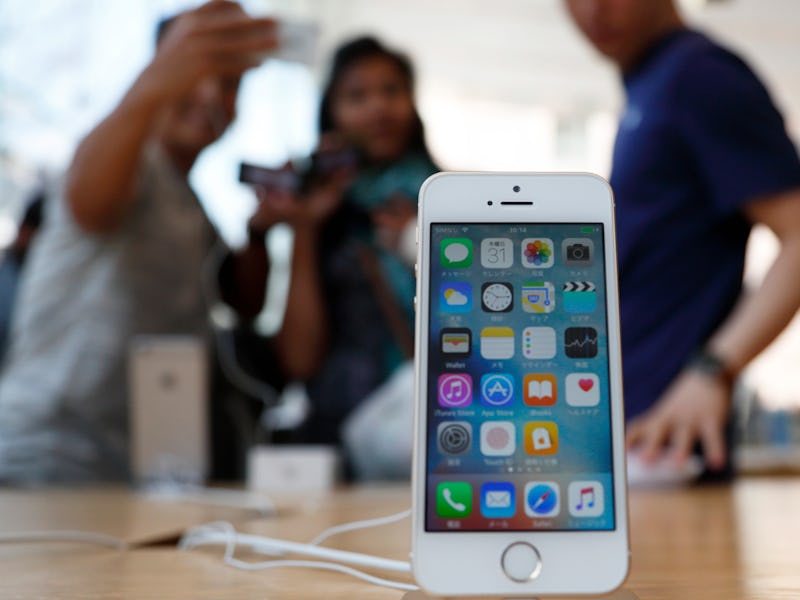5 Big Questions About Apple's Rumored Paid Search Results in the App Store
Money rules everything around me.

Behind closed doors, Apple is planning some big changes to the app store. Earlier today, Bloomberg reported that Apple had assembled a secret team to clean up and change the app store, including developing a “paid search” function that would let developers buy their way to the top of search results.
A paid search function would work similarly to Google’s sponsored search results, which would charge developers to have their app listed at the top of the list when a user searched for a term related to their product. Bloomberg says there are about 100 employees working on the project, some of whom were reassigned from Apple’s iAd advertising group, including the secret team’s leader, Apple Vice President Todd Teresi. The team hasn’t been at it very long, and we don’t know when any changes will be introduced, but we do know they’re working on ways to streamline and clean up the crowded app store as more and more developers join in. The app store has about 1.5 million apps, and customers have downloaded more than 100 billion since its start in 2008, so Apple is mostly looking for ways to make the store easier to navigate.
And that’s pretty much it. That’s all we know. However, we’ve got some questions.
1. Is paid search bad for customers?
Say you’re looking for a stargazing app. One of the best and highest rated apps is free, but a shittier app which costs $1.99 buys their way to the top of the search list, figuring that they’ll make up the difference through sales from being up high, even if their product is inferior. Hopefully, like Google’s search results, sponsored links are clearly marked.
Catch me laughing all the way to the app store, son.
2. How much will it cost to get your app in paid search?
There are two sides to this — if it’s prohibitively expensive, it’ll mean that smaller developers are probably pushed out of the market and don’t have much of a chance to keep their app, regardless of how good it is, at the top of the list. If it’s too cheap, however, it may become status quo that you have to pay for search priority to even have a chance of succeeding in the app store, which is also pretty messed up.
3. Will this apply to podcasts?
Right now, it’s extremely easy to get a podcast into the iTunes store. While Bloomberg’s report makes it appear like the paid search changes will only affect the app store, we could see them spreading to other branches of the iTunes marketplace. Podcasts are the lowest barrier-to-entry medium (as all the files are hosted on your own computer), and paid search functions could throw off a lot of small podcasters relying on search results to get noticed.
4. If it’s successful, could Apple introduce paid search for music and movies?
Paid search about to be lit.
This is similar to podcasts, but separate because the markets are completely different. Music and movies are enormous, multi-billion dollar industries, and paid search functions could completely change how albums and movies are marketed. TV shows as well could be affected by paid search changes.
5. Will Apple make it harder for new apps to succeed?
Clearly, the paid search function could change the way apps are marketed, but it seems like Apple’s secret team is aiming to clean up the wild west of the app store. Does cleaning up mean instilling more of a filter on new apps, or new developers, so they have less saturation in the market?
We probably won’t know the answers to a lot of these questions until the secret team comes out of the shadows, but the app store could be in for some serious changes in 2016.